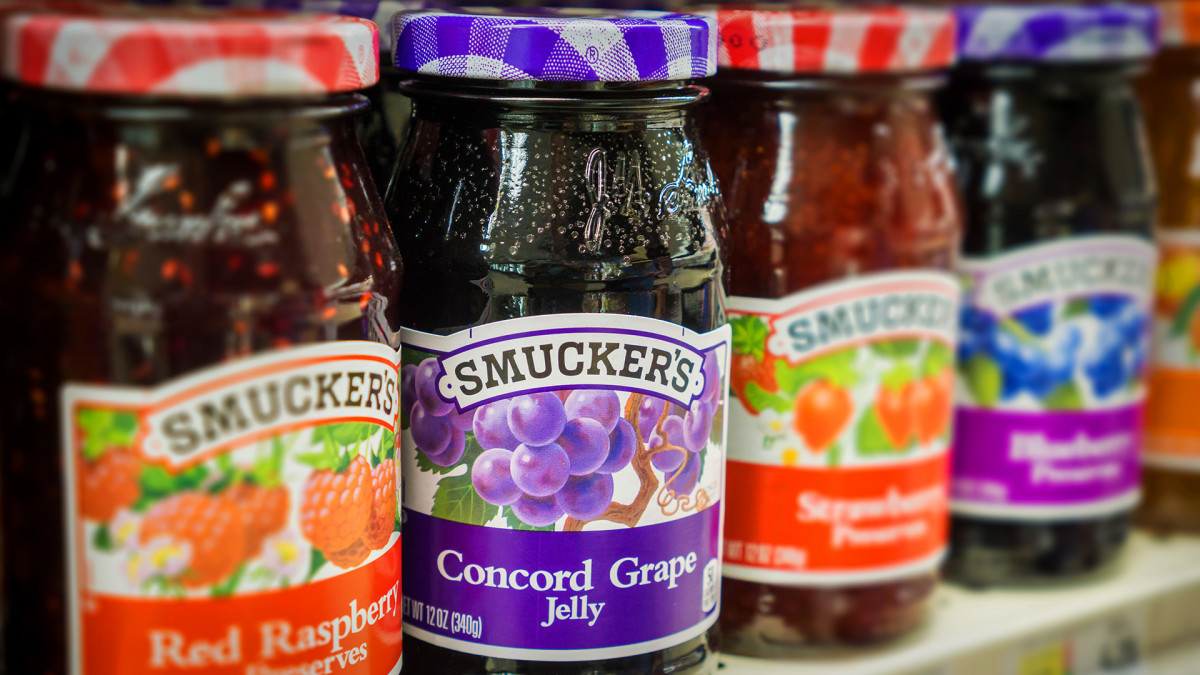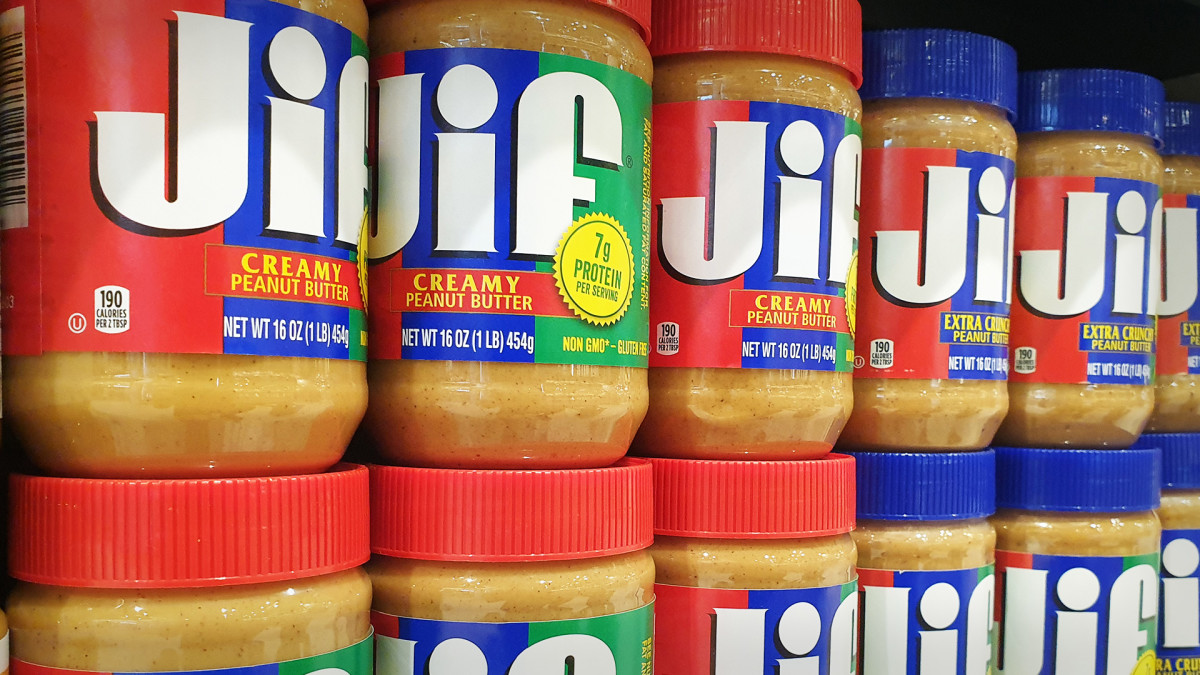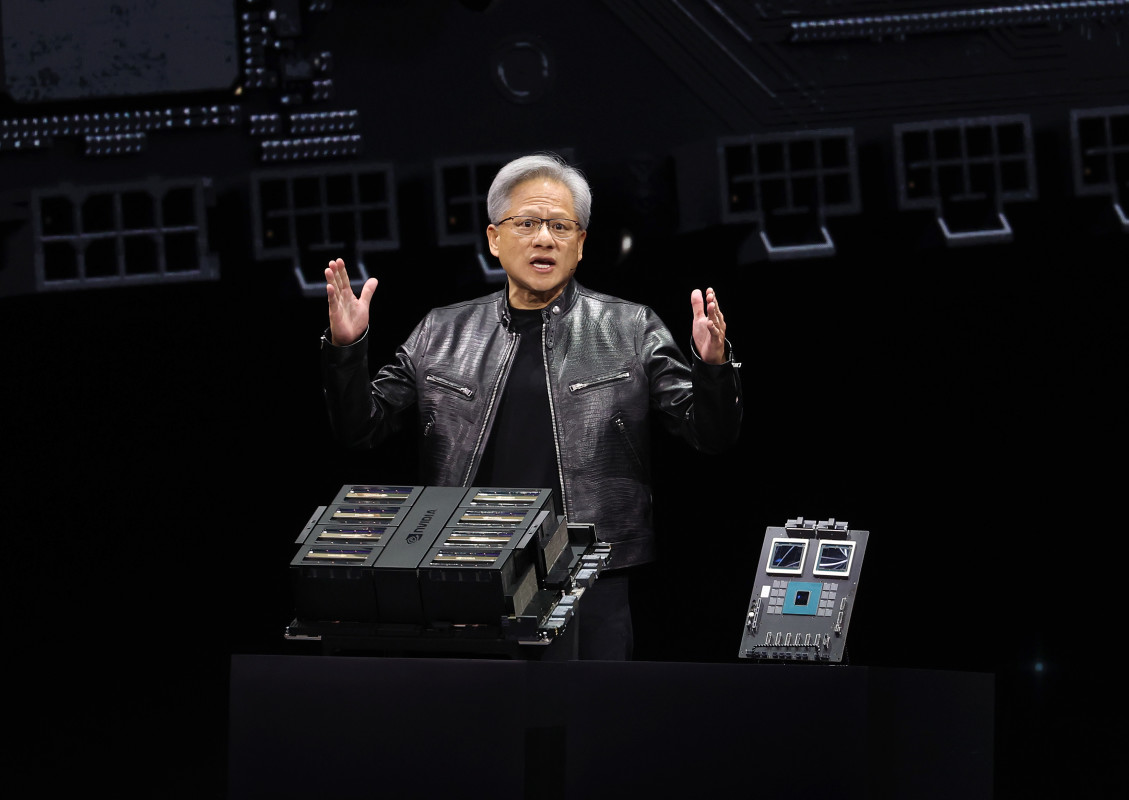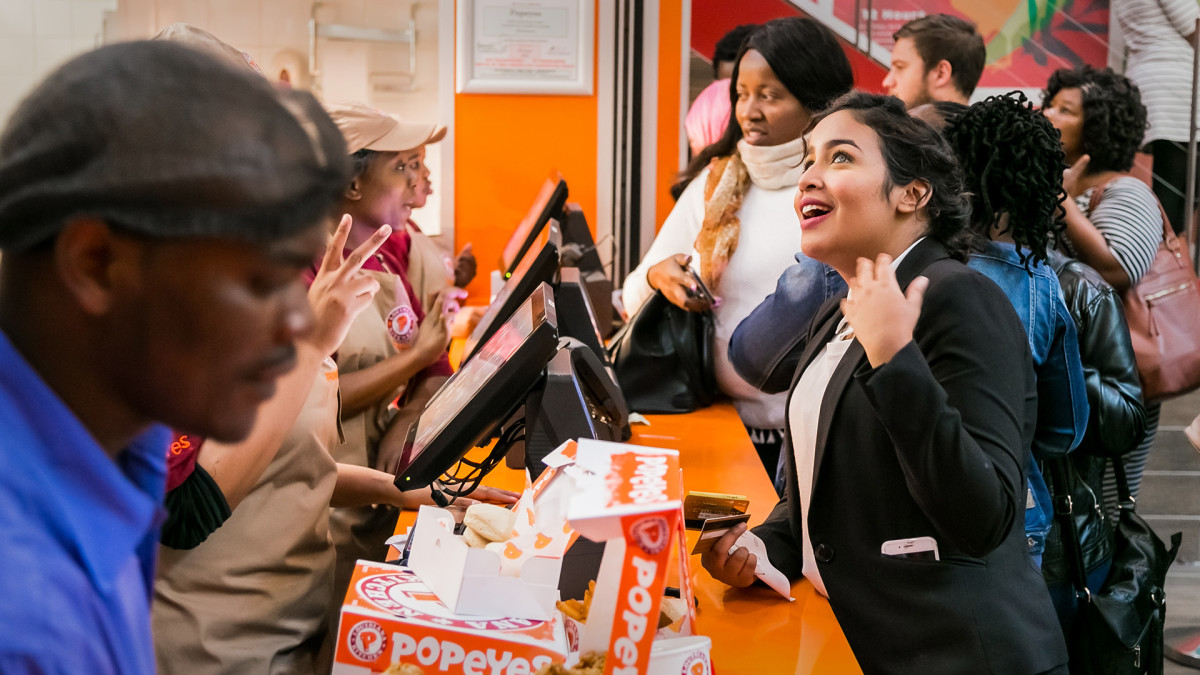Trader Joe’s faces copycat lawsuit
There are few meals more satisfying than a peanut butter and jelly sandwich. So leave it to J.M. Smucker Company, parent company of Jif Peanut Butter and Smucker's fruit spreads made from every fruit imaginable, to come up with "Uncrustables," the ultimate "to go" sandwich. The frozen, pre-made ...

There are few meals more satisfying than a peanut butter and jelly sandwich.
So leave it to J.M. Smucker Company, parent company of Jif Peanut Butter and Smucker's fruit spreads made from every fruit imaginable, to come up with "Uncrustables," the ultimate "to go" sandwich.
The frozen, pre-made sandwich, filled with peanut butter and jelly, crust removed and edges crimped shut, has been a favorite snack for millions of Americans since its debut in 1996.
The popularity and convenience of the sandwich apparently caught the attention of Trader Joe's, which sells a "Crustless Peanut Butter & Strawberry Jam." Shutterstock
J.M. Smucker is suing Trader Joe's
In October 2025, The J.M. Smucker Company filed a lawsuit against Trader Joe’s.
Smucker’s lawsuit claims Trader Joe’s replicated the round, crimped-edge sandwich shape and blue-toned packaging that helped Uncrustables become a billion-dollar grocery success.
Related: 80-year-old grocery chain closing all locations unexpectedly
Trader Joe's sells many products made by well-known companies under its own label, but that is not the case with this sandwich, as reported by the Akron Beacon Journal.
“As a responsible trademark owner, we actively monitor the marketplace and enforce our federally registered trademarks to protect the distinctive Uncrustables sandwich design and round shape,” a company spokesperson told ABC News.
Uncrustables is a billion-dollar brand
The case is significant because Uncrustables have become one of Smucker’s most successful product lines.
The company has invested more than $1 billion in developing and marketing the brand, which now generates roughly $920 million in annual sales, a 15% increase year-over-year, according to Smucker’s 2025 financial report.
It's a ravioli made from bread (crust cut off) and filled with peanut butter and jelly. No need to cook.
@pakka999 on Reddit, describing Uncrustables
The sandwiches’ convenience and nostalgic appeal have made them a lunchbox staple, helping Uncrustables represent more than 10% of J.M. Smucker’s total revenue.
To keep pace with rising demand, the company recently opened a $1.1 billion production facility in Alabama— one of the largest capital investments in the company's history.
Trader Joe’s and the power of the private label
For Trader Joe’s, the lawsuit underscores the tension at the heart of its private-label empire. The retailer has built a loyal following by offering affordable, high-quality store-brand alternatives that often rival or outperform national brands.
Nearly every item on its shelves carries the Trader Joe’s label — a business model that fuels its identity as a destination for exclusive, “discovered” products.
But the copycat strategy also brings risk.
As private-label goods grow more sophisticated and market-dominant, national brands have become increasingly protective of their intellectual property. Smucker’s legal move reflects that shift.
“For the brand owner, what is the point of having this brand if I’m not going to enforce it?” the source told ABC News, explaining why companies like Smucker are taking a firmer stance against retailers that blur visual lines.
A booming market for store brands
Industry data shows that private-label growth is accelerating faster than national brands — a trend Trader Joe’s helped popularize.
Private-label growth is on the rise, according to the Private Label Manufacturers Association (PLMA):
- Record Sales: U.S. store-brand grocery sales reached $271 billion in 2024, up 3.9% from 2023.
- Market Share: Store brands accounted for 20.7% of all grocery dollar sales and 23.1% of unit share, signaling consumers’ growing trust in private labels.
- Outpacing Brands: Private-label sales growth exceeded that of national brands, which rose just 1% year-over-year.
- Consumer Preference: About one in four grocery products sold in 2024 carried a store label.
Private-label products once competed with national brands mainly on price, but now they compete on innovation, packaging, and taste.
Trader Joe’s exemplifies that shift, offering unique flavors and assortments rather than simple copycats. Yet in the case of the crustless peanut butter and jelly sandwich, Smucker argues the resemblance goes beyond inspiration.
Legal implications of the Smucker vs. Trader Joe's lawsuit
If J.M. Smucker wins the lawsuit, the ruling could set a precedent that reshapes how far private-label retailers can go when it comes to making copycat products. If Trader Joe’s prevails, it may embolden other grocers to push those creative boundaries even further.
Legal analysts say the case underscores an evolving dynamic in the U.S. grocery market: As private labels expand, the distinction between innovation and infringement becomes less clear.
The Uncrustables lawsuit is about the future of store-brand strategy in an industry where private labels now command hundreds of billions in annual sales.
Smucker is defending its brand, and Trader Joe's is testing the limits of its hallmark "copycat" products.
Related: Trader Joe's Halloween product sparks viral frenzy (again)
What's Your Reaction?




















































